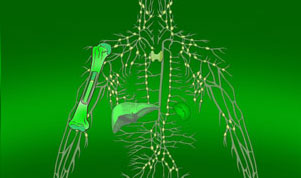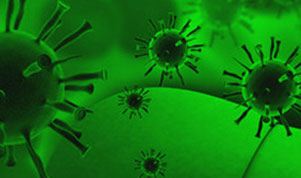Research in the USA
Influenza is a serious viral infectious disease, often confused with other, much milder, respiratory infections caused by: rhinoviruses, RS viruses and parainfluenza viruses, and in children, adenoviruses.


Influenza caused by the H1N1 virus was a gigantic pandemic* in 1918-1919, the so-called Spanish flu and the so-called pandemic in 2009 Mexican disease, as a result of which over 100,000 people died. people. Other major influenza pandemics include the so-called H2N2 virus caused in 1959. Asian flu and flu caused by the H3N2 virus in 1970, the so-called Hong Kong.
A team of leading scientists from the USA, Denmark and Sweden tested Spirulina platensis algae extract for its effect on influenza infection caused by the N1H1 virus. It has been found that it reduces the risk of influenza, and if it occurs, it shortens and alleviates its course and reduces the risk of complications. Scientists tested immulina, a preparation containing a special extract of microalgae. The research was conducted at leading medical universities in the USA and Europe.
Professor Gus Kousoulas, virologist and director of the Louisiana State University Center for Infectious Disease Research, who coordinated the study, summarizes the results: "The special extract of Spirulina platensis microalgae we tested not only relieves flu symptoms and prevents post-flu complications. This bioactive complex increases immunity to influenza caused by the H1N1 virus".
Professor Martin Schalling, director of the Center for Molecular Medicine, Karolinska Institutet in Stockholm states: "Our tests of the Spirulina platensis microalgae extract have shown that it has a very beneficial effect in triggering the body's appropriate response to H1N1 influenza virus infection.".
* pandemic – an epidemic of an infectious disease in various environments, over a large area - on different continents at the same time.
Research in Taiwan
Authors: Chen Yi-Husiang, Chang Gi-Kung et al, College of Medicine, Chang Gung University, Taoyuan, Taiwan, Republic of China
Influenza is one of the most common human respiratory diseases, and represents a serious public health concern. However, the high mutability of influenza viruses has hampered vaccine development, and resistant strains to existing anti-viral drugs have also emerged. Novel anti-influenza therapies are urgently needed, and in this study, we describe the anti-viral properties of a Spirulina (Arthrospira platensis) cold water extract. Anti-viral effects have previously been reported for extracts and specific substances derived from Spirulina, and here we show that this Spirulina cold water extract has low cellular toxicity, and is well-tolerated in animal models at one dose as high as 5,000 mg/kg, or 3,000 mg/kg/day for 14 successive days. Anti-flu efficacy studies revealed that the Spirulina extract inhibited viral plaque formation in a broad range of influenza viruses, including oseltamivir-resistant strains. Spirulina extract was found to act at an early stage of infection to reduce virus yields in cells and improve survival in influenza-infected mice, with inhibition of influenza hemagglutination identified as one of the mechanisms involved. Together, these results suggest that the cold water extract of Spirulina might serve as a safe and effective therapeutic agent to manage influenza outbreaks, and further clinical investigation may be warranted.
If you would like to read → the full article in English
Liang SXT, Wong LS et al. Therapeutic Applications of Spirulina against Human Pathogenic Viruses – J Exp.Biol.Agricult.Sci., 2021, 9, S38-S42. Malaysia
Selected summaries of publications on the effect of spirulina on the influenza virus and other viruses → the effect of spirulina on the influenza virus (pdf files in English)
Abstracts of publications on spirulina research selected from MEDLINE → spirulina medical research (pdf file in English, 528 pages, 2,2 MB size)









